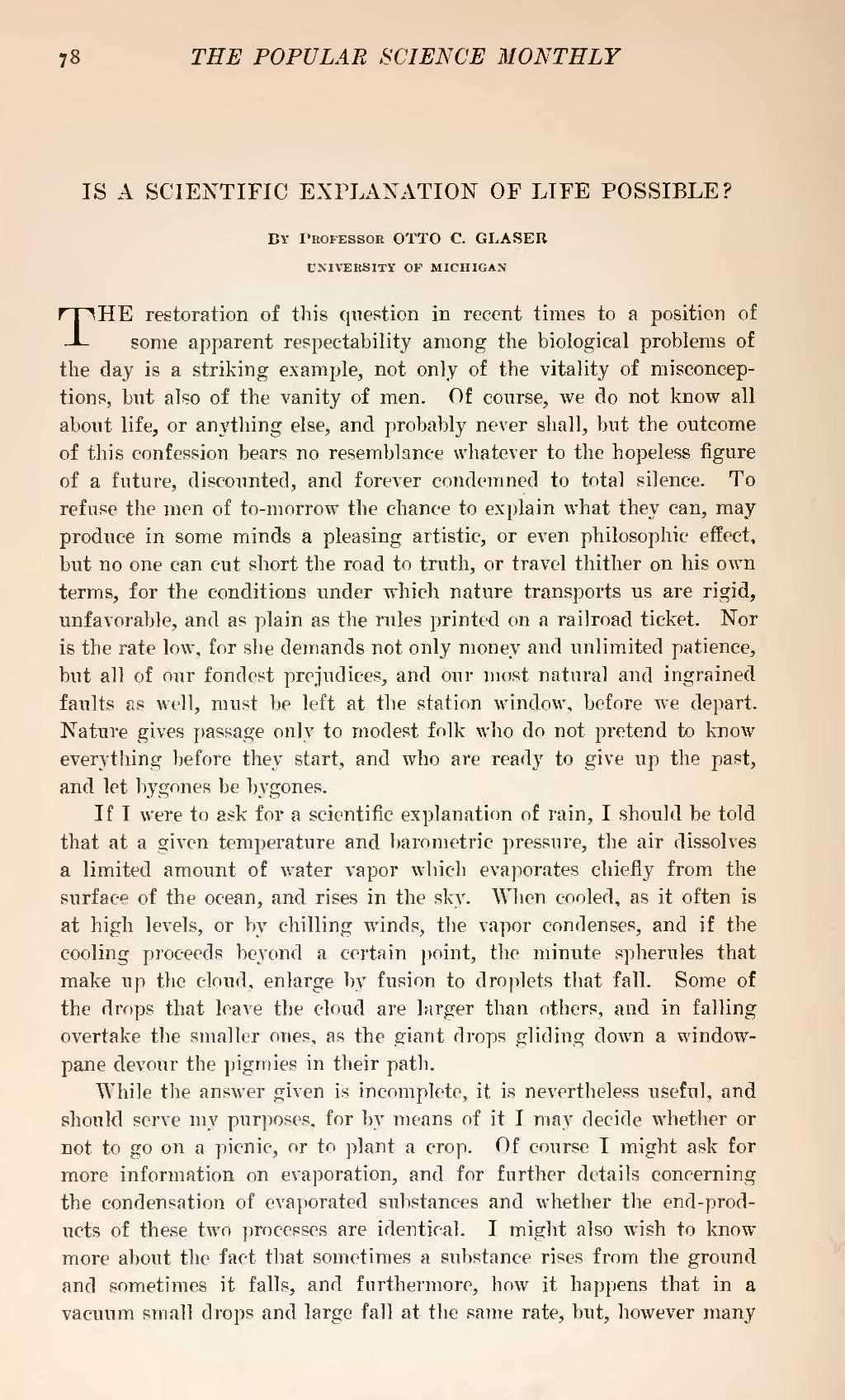| IS A SCIENTIFIC EXPLANATION OF LIFE POSSIBLE? |
By Professor OTTO C. GLASER
UNIVERSITY OF MICHIGAN
THE restoration of this question in recent times to a position of some apparent respectability among the biological problems of the day is a striking example, not only of the vitality of misconceptions, but also of the vanity of men. Of course, we do not know all about life, or anything else, and probably never shall, but the outcome of this confession bears no resemblance whatever to the hopeless figure of a future, discounted, and forever condemned to total silence. To refuse the men of to-morrow the chance to explain what they can, may produce in some minds a pleasing artistic, or even philosophic effect, but no one can cut short the road to truth, or travel thither on his own terms, for the conditions under which nature transports us are rigid, unfavorable, and as plain as the rules printed on a railroad ticket. Nor is the rate low, for she demands not only money and unlimited patience, but all of our fondest prejudices, and our most natural and ingrained faults as well, must be left at the station window, before we depart. Nature gives passage only to modest folk who do not pretend to know everything before they start, and who are ready to give up the past, and let bygones be bygones.
If I were to ask for a scientific explanation of rain, I should be told that at a given temperature and barometric pressure, the air dissolves a limited amount of water vapor which evaporates chiefly from the surface of the ocean, and rises in the sky. When cooled, as it often is at high levels, or by chilling winds, the vapor condenses, and if the cooling proceeds beyond a certain point, the minute spherules that make up the cloud, enlarge by fusion to droplets that fall. Some of the drops that leave the cloud are larger than others, and in falling overtake the smaller ones, as the giant drops gliding down a window-pane devour the pigmies in their path.
While the answer given is incomplete, it is nevertheless useful, and should serve my purposes, for by means of it I may decide whether or not to go on a picnic, or to plant a crop. Of course I might ask for more information on evaporation, and for further details concerning the condensation of evaporated substances and whether the end-products of these two processes are identical. I might also wish to know more about the fact that sometimes a substance rises from the ground and sometimes it falls, and furthermore, how it happens that in a vacuum small drops and large fall at the same rate, but, however many
